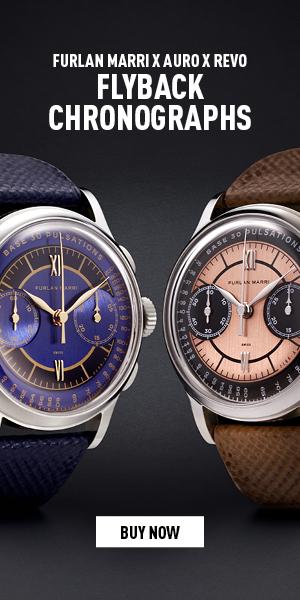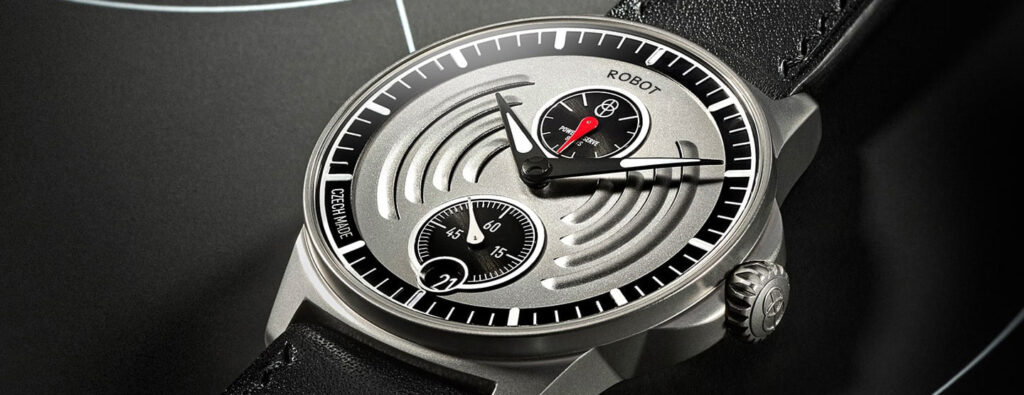Grand Seiko
Brand Boutiques: Essential or Unnecessary Competition?
Grand Seiko
Brand Boutiques: Essential or Unnecessary Competition?
The Pro View
Brand boutiques are an essential element of growing a brand.
At Baselworld 2016, our President, Shinji Hattori, announced his intention to increase the number of Seiko boutiques to 100 in the coming years. At the end of 2016, the number has already risen to 73, with several more at an advanced stage of development.
From this you will see that our enthusiasm for having a strong network of Seiko boutiques is undiminished and that, even in challenging times, we are continuing with our steady expansion of these outlets.
There are several reasons for our commitment to this policy.
First, we believe passionately that consumers deserve the best possible information about the Seiko world and its products. Ours is a very diverse collection that incorporates a wider range of watch movements and designs than that offered by any other watchmaker. With Spring Drive, GPS Solar, many different mechanical calibers and more, Seiko’s collection is so rich in technology that only in our own boutiques can we be really sure that the watch enthusiast can see, compare and understand them all. Furthermore, through our boutique network, we can allow consumers to explore the history and watchmaking skills that make Seiko unique. Our 135-year heritage, our proprietary technologies and the fact that Seiko is the only manufacture with every watchmaking expertise are all important and often unknown aspects of the Seiko world.
The second reason is that, today, Seiko is changing fast and, to help all our retailers, we therefore need to put the new Seiko in front of the public in high profile retail locations where they can become accustomed to the new technologies, calibers and, sometimes, prices that the new Seiko offers. The Seiko boutiques are our trailblazers and they are successfully helping to familiarize the watch public with the fast-changing Seiko world.
At Baselworld 2016, we presented to the world a new collection that included two remarkable watches. One was the Credor Fugaku tourbillon, a mechanical masterpiece that drew fulsome praise from watch experts and watch lovers alike. The second was a hand-crafted Grand Seiko Spring Drive watch with an eight day power reserve. These watches’ retail prices are around $460,000 and $55,000 respectively, far above the current price ranges where our independent retailers’ business lies. We have presented these magnificent creations at several Seiko boutiques worldwide and we have been delighted with the positive response from all sides, including from our retail partners who are universally very pleased to see that Seiko is promoting its watchmaking prowess in this way. This experience encapsulates exactly the ideas that underpin the philosophy of the Seiko boutiques. Please come and visit one–a warm welcome awaits.
by Yoshikatsu Kawada
Director, Senior Vice President of Seiko Watch Corporation
The Opposition View
Brand boutiques are direct competition to loyal retailers.
The brand boutique is a relatively recent development. The trend started, in general, as a way to present a manicured brand image–an extension of marketing. Initially, it was even pitched to the retailers that the boutiques were here to help us! However, something happened, and it is not good. The manufacturers now see the boutique business as an opportunity to compete with and undermine their retailers. My first negative experience came whilst managing Hochfield Jewelers in Aspen, CO. We brought a star watchmaker to town on multiple occasions to develop our business with the brand and strengthen the relationship with our clients. We were immensely successful and sold many, many of these watches. So much so that the company decided to cut us out and open their own boutique. This did not actually go as well for the brand as they had hoped. Our loyal clientele did not appreciate the actions of the brand. As a retailer, we of course replaced that brand with another upcoming brand, Roger Dubuis. It is not usually the best policy to cut off the hand that feeds you. That original boutique subsequently closed.
It is, after all, the retailers who build a following for a brand and create demand and desire. I see no reason for any brand to require their own boutiques for any purpose other than to compete with their retailers. A professional and knowledgeable retailer has a loyal client base with whom trust and a personal relationship has been forged over a number of years. Today, some brands over-estimate their own self-importance and fail to recognize the strength of their partnerships.
I do understand that not every retailer has the knowledge to satisfy the requirements of an important brand. However, I feel that a lot of this responsibility falls on the brands themselves. It is up to the brands to expect higher standards from their retailers, be more selective with their network and to provide the tools to promote this standard. Audemars Piguet and Dior, for example, both provide mandatory training and enforce the highest standards of knowledge and integrity. This benefits the retailer, the manufacturer and ultimately the customer. They may compete with us with their boutiques but the efforts to support our business ensure that there is never a feeling that we are not important to them and to the market. On the contrary, they expect and demand more of us and constantly strive to grow our business together. There are other positive examples, of course.
Today, there can even be what I consider to be unethical competition provided by some brand boutiques. A brand using its marketing channels to support their boutiques to a level which treats their retail “partners” like second class citizens is unforgivable to me. They do this by abusing the customer referral system, failing to even allow customers to find their local retailer and trying to direct the client to their boutiques instead. Furthermore, some brands advertise pieces with no intention of delivering to the retail market–unless sales are weaker than expected and they have excess inventory.
Finally, the ultimate insult to the retailer is when pieces ordered at the shows suddenly show-up, many months after deliveries started to the boutiques and when sales have slowed down at the boutiques for that model. Appalling behavior. A few years ago, one brand delivered our entire Basel Fall order to us the week after Christmas!!! I could not believe it. It was an extremely famous, historically important and highly prestigious brand. We ultimately stopped representing that brand and I could not be happier.
There is plenty of opportunity for brand boutiques and retailers to operate successfully together. However, this requires a mutual respect and an acknowledgment of each other’s strengths. The brands have an obligation to ensure that their boutiques are successful. They also have an obligation to earnestly support their retail partners and to work together. I would hope that other retailers would stand up and not accept poor treatment just because they feel that the name of that brand may be important for their business. Retailers do have power. Retailers have the power and freedom to choose worthy partners and to not allow unhealthy relationships to dominate their business. There are many brands to support. Be brave. Retailers and consumers alike should support those they feel are worthy and have earned and will continue to earn their business and trust. Embracing the passion and beauty of our incredible industry is the key to success.
by Jeremy Oster
Co-Owner, Oster Jewelers (Denver)










